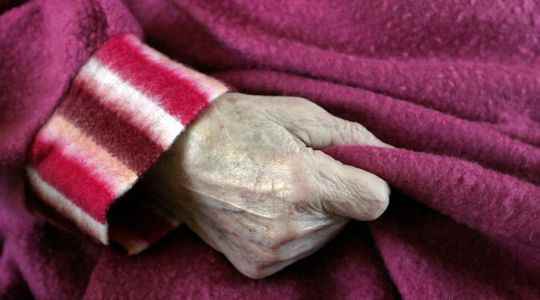A great sequence on the sensitive question of the end of life opens. In a long-awaited opinion made public on Tuesday, September 13, the National Consultative Ethics Committee (CCNE) deemed possible active assistance in dying strictly supervised. While four bills were in the pipeline during the previous five-year period to relaunch the debate on this societal issue, CCNE set up a working group in June 2021 to look into the resulting ethical issues. This new opinion kicks off many debates that could lead to a text of law, while the Claeys-Leonetti law adopted in France in 2016 currently prohibits euthanasia and assisted suicide. On the other hand, it allows “deep and continuous sedation” until death for patients in the terminal phase and in very great suffering when their vital prognosis is engaged in the short term.
“There is a way for an ethical application of active assistance in dying, under certain strict conditions with which it appears unacceptable to compromise”, declared Alain Claeys, one of the rapporteurs of the CCNR opinion, during a press conference. The Committee recommends in its opinion, as in the previous ones, the strengthening of public health measures in favor of palliative care. The big change lies in the possibility that it grants to the legislator to legislate on assisted dying on the condition of respecting a “certain number of ethical criteria”, such as that of a “free, informed and repeated” request. of the person concerned. Among the forty members, only eight wished to express a “reservation” mentioned in the opinion. The CCNE “calls for it” to hold a national debate in which it will participate.
Macron announces six months of citizen consultation
Emmanuel Macron followed up on Tuesday, announcing the launch of a broad citizen consultation on the end of life, with a view to a possible new “legal framework” by the end of 2023. The Economic, Social and Environmental Council (CESE), will be responsible for organizing a citizens’ convention “constituted in October” which will deliver its conclusions in “March 2023”, i.e. six months of discussions, said the Elysée in a press release. In addition, debates will also be organized by the regional ethical spaces in the territories “in order to reach out to all citizens and allow them to be informed and to measure the issues related to the end of life”, a completed the presidency. Deputies and senators will also be concerned by this consultation through “a concerted and transpartisan work”. Referendum or parliamentary route, the Head of State remains open. Since 2017, he has never used the first solution.
For their part, the oppositions are wary of the principle of a new citizens’ convention. “Completely pipeau”, as designated by the leader of the LR group in the Senate and candidate for the presidency of his party, Bruno Retailleau, at the microphone of Sud Radio. The rebellious MP Clémentine Autain said she was “very skeptical” about the “method” on LCI, while stressing that “the time has come” to open up this “possibility of dying with dignity in a very supervised way”. On France 2, the president of the National Rally Marine Le Pen recalled her opposition to “going beyond” the Claeys-Leonetti law.
Varied legislation in Europe
Although the president assured the press that he had “no official position”, he had declared that he was personally “in favor of moving towards the Belgian model”, after being questioned about the end of life during a trip to Charente-Maritime, at the end of March, during his presidential campaign. In Belgium, anyone suffering from an incurable pathology can request euthanasia, under certain conditions. This is performed by a doctor at home or in the hospital. The practice was extended to minors in 2014, under very strict conditions. Brussels was one of the first countries to legalize it, in 2002, with the Netherlands in 2001. In Amsterdam, the regulations are similar but the threshold has been set at 12 years. Luxembourg is the third country to have followed this path in 2009, for adults.
A little further south, Switzerland, allows assisted suicide. The practice has been decriminalized for decades. Patients are responsible for self-administering the lethal dose. It is here associations, and not doctors, who are responsible for supervising active euthanasia. It is conditioned by the discernment of the patient.
On the other side of the Pyrenees, Spain authorized euthanasia and assisted suicide very recently, in 2021. Strict conditions govern these procedures: the person must be “capable and aware” when making their request, which must be formulated in writing “without external pressure” and renewed fifteen days later. The doctor can reject this request, and must in any case receive the green light from an evaluation committee. In Portugal, a draft law authorizing both practices is under consideration. Approved twice by the deputies, the text was rejected, the president having vetoed. He asks the representatives for clarifications concerning the eligibility criteria.
In the rest of Europe, the legislation varies between the possibility of interrupting treatments, as is currently the case in France, notably in Sweden, Germany, Austria and Norway, while others, such as Poland, Ireland, Romania, Greece or Croatia formally prohibit euthanasia, which is often punishable by a heavy prison sentence.
